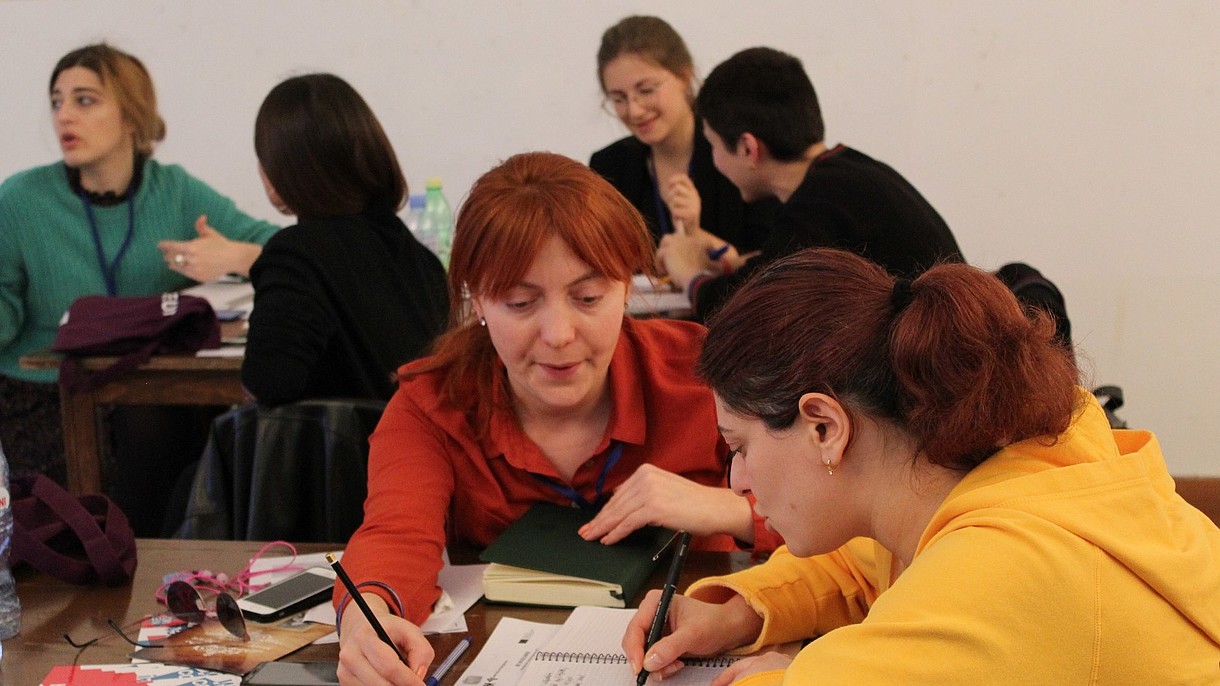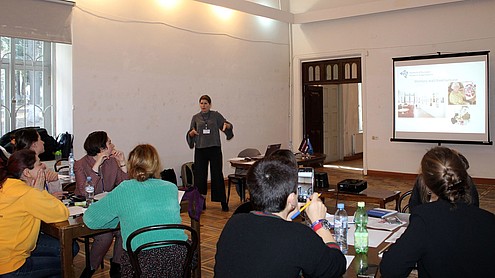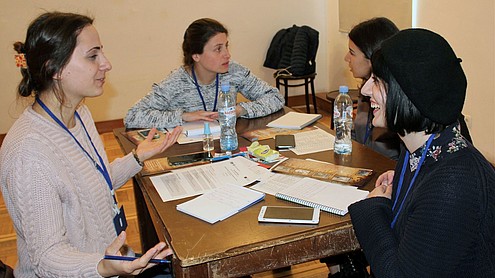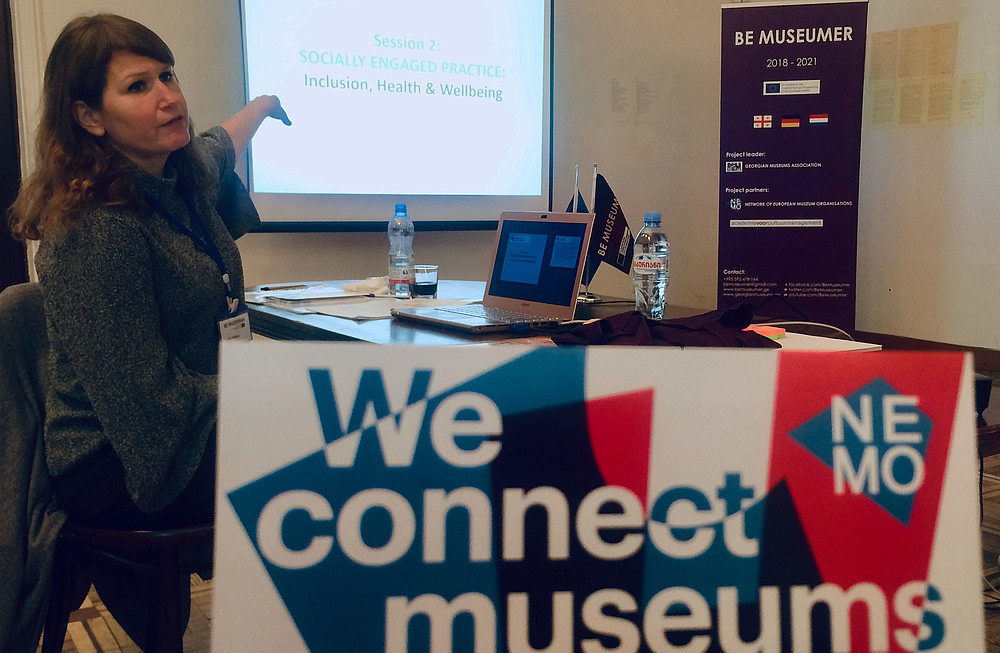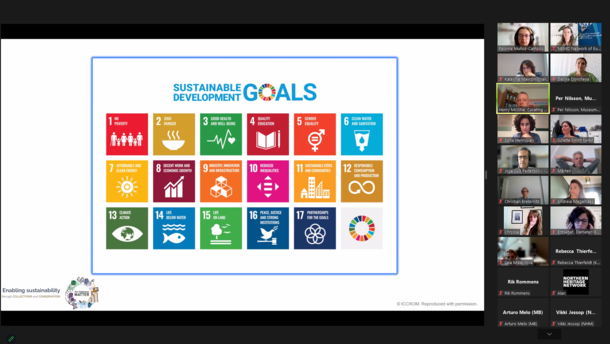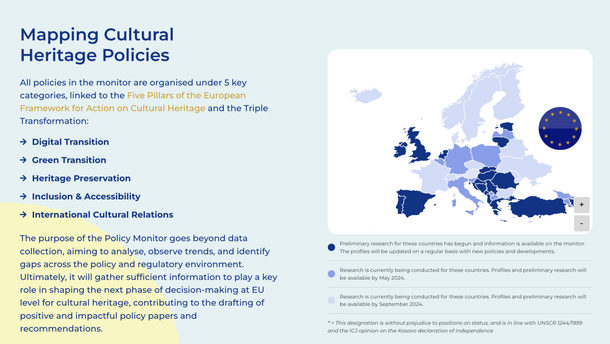Sofia Tsilidou was pleased to experience that the participants were active in asking questions and that there were plenty of time for networking. The training opened with discussions on social value as a growing trend in policy making at many levels, i.e. museums associations, EU institutions, NEMO, ICOM and UNESCO to mention a few. The participants remarked that it is a positive trend since it helps challenge stereotypes. However, it can hardly be found as a priority in their national laws - when it does, it is limited in measures for improving infrastructure for physically disabled people; it is not mentioned in museum mission statements - which would legitimise and encourage this type of work, nor are there any funding streams available for this type of work. The need for stronger advocacy from the museum community came up as a means to connect policy makers with the museum community and its requirements.
Sofia also adds that they focused on what socially engaged practice is, how it manifests itself in activities promoting social inclusion and enhancing health and wellbeing. Participants worked in pairs to exchange on projects tackling social inequality and disadvantage in their museums. Common problems seem to be lack of infrastructure for wheelchair users, the fact that disabled people are still stigmatised and are almost invisible in museums as well as in the cultural life in general in both Georgia and Azerbaijan. The lack of collaboration with the health and social care and welfare sector, training needs of staff, lack of committed leadership etc. were also brought up.
The participants got to work in groups to create three collective memory boxes with items selected from diverse museum collections illustrating a common topic (e.g. Love, Childhood and summer holidays, Stalin) and intended to be used for reminiscence sessions for people with dementia. Some of the participants commented that they were inspired by this exercise to initiate such a programme for elderly people in their museums.



